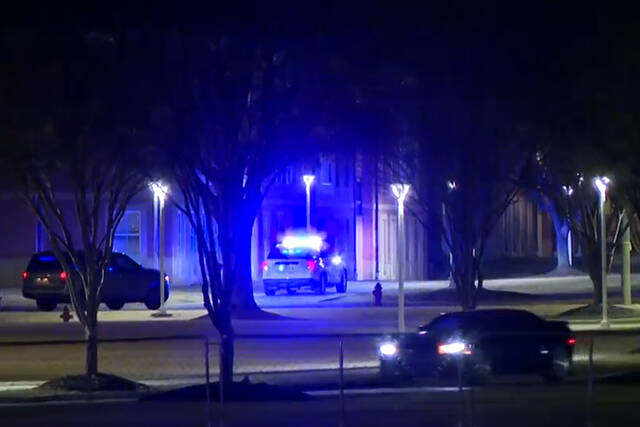Duquesne University placed an education professor on paid leave Friday after backlash erupted in response to his use of a racial slur during a virtual class on Thursday. The class was captured in videos and posted to social media.
Effective Friday afternoon, “that faculty member in the video is on paid leave, pending investigation,” Gabriel Welsch, Duquesne’s vice president of marketing and communications, told the Tribune-Review by email.
“Duquesne University takes very seriously our work in creating an inclusive environment,” Welsch said.
The university confirmed that Professor Gary Shank, from the School of Education, is the professor shown in the video. Shank, who is white, joined Duquesne in 1997, according to his LinkedIn profile. He could not be reached for comment.
“He is not teaching,” Welsch said. “As this is a personnel matter, further specifics cannot be discussed, but another professor is taking over the course.”
School of Education Dean Gretchen Generett issued a statement to those enrolled in the class “within moments of learning about the incident,” Welsch said. She told students she was writing to offer her “sincere apologies to you for what you experienced.”
Multiple videos showing the controversial portions of the virtual class, held on Thursday, were posted to Twitter around 3 p.m. Friday. The course subject was educational psychology.
The videos — which capture a laptop screen while the virtual class was in session — span about 2 minutes, during which the professor spoke in the upper right corner alongside a presentation slide titled “Race (from a cultural sense).”
“I’m giving you permission to use the word, OK, because we’re using the word in a pedagogical sense. What’s the one word about race that we’re not allowed to use?” asks Shank.
Nobody responds.
“I’ll give you a hint: It starts with ‘n,’ “ Shank continues. “OK, I’ll tell you the word. And again, I’m not using it in any way other than to demonstrate a point. Fair enough?”
The professor then says the full N-word and begins discussing how it was used when he was younger: “When I was a young man, all right, that was a very commonly used word.”
Using the full N-word, the professor goes on to reference how he used to hear Brazil nuts referred to as “(N-word) toes” and asks, “Could we do that nowadays?”
“No, absolutely not,” a student can be heard responding.
“Absolutely not,” Shank says.
“When I had a little extra money and I was spending it extravagantly, some people would say I was (N-word)-rich,” Shank says. “Would we do that today? … No.”
The dean said she learned about what happened from concerned students who emailed their adviser, and knows of at least one student who emailed the professor directly.
“I understand that sending those emails was not easy, and I want to thank students for using their voices to share the troubling and disturbing language that was used by your professor in class,” Generett wrote to students.
“To be clear, I believe that there is never a time, pedagogically or otherwise, for a professor to create a hostile learning environment,” Generett said. “I know this from my experience as a student, a professor, and now as interim dean of the School of Education. Using the ‘N-word’ or seemingly encouraging students to use that word is not in keeping with the mission of the University, the School of Education, or the Pennsylvania Department of Education.
“Please know that this matter is being taken very seriously by School of Education leadership, and please feel free to reach out to us if you have any ongoing questions or concerns.”








